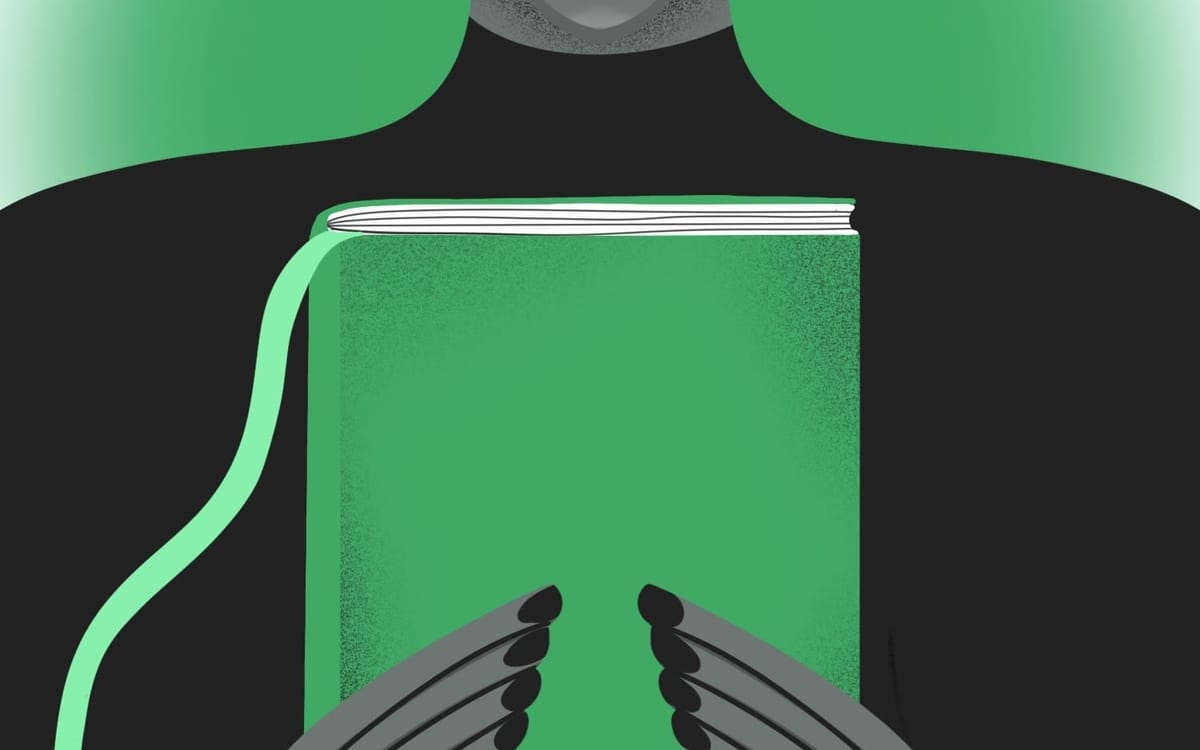A Guide to Getting Your Books Purchased and Promoted in Libraries
How to Win over Librarians and Broaden the Reach of your Work.

The number of authors using Kickstarter to publish their books has soared in recent years. But once your book is funded and in the hands of your grateful backers, what else can you do to get it out into the world? Most writers have a sense of traditional distribution models that allow you to make your book available for sale online and in bookstores, but libraries offer a strong and often overlooked avenue that can have a major impact on broadening the reach of your work.
Libraries remain among the very last truly free, publicly available resources in North America, and have found widespread popularity with Gen Z and Millennial visitors. However, the actual process of books making it into libraries remains a mystery generally filed under “Librarian Sorcery.” With over $189 million in annual federal funding, it’s a market outside of retail that would be foolish to ignore. Even if you donate your book to a library, or they only purchase one copy of your title, the potential to drive discovery to an unlimited number of library users is truly immeasurable.
If you need more reasons to value the support of librarians, consider this: they are at the forefront of the current surge in book bans and challenges. Although bans may sometimes lead to increased sales for the affected books, it's the librarians' awareness and amplification of these bans that generate interest, media coverage, and demand. Without librarians in your corner, you may find yourself defending your art in the public eye without support.If you’re a book creator who hasn’t yet figured out how to get your books purchased by 123,627 libraries in North America alone, or you want to strengthen your library relationships for continued mutual benefit, this is the article for you.
Tip #1: Make your next Kickstarter campaign a library-friendly project.
Though few libraries are able to officially back Kickstarter projects, due to book budget funding sources requiring various levels of local government approval and guaranteed project fulfillment, going into your next campaign with libraries in mind in addition to your usual backers is a smart play. Some library-friendly aspects to consider:
- Offer library-specific rewards. Many backers are willing to spend more money on your campaign if you add a copy for library donation to their reward. You can do this with “get one, give one” reward tiers like Claudie Castro Luna’s poetry collection One River, A Thousand Voices, Green Card Voices’ graphic novel anthology Our Stories Carried Us Here, or Orlande’s The <Unofficial> International Student Guide.
- Branded rewards. Libraries, just like all people, love book swag! Increase your chances of driving broader discovery by providing branded giveaway items that libraries can use for prizes. Libraries need and use tons of prizes for programs like Summer Reading campaigns and other incentivized community activities.
- Make libraries your focus. There have been many library-friendly Kickstarter campaigns you can look to for inspiration. BOOM! Studios smashed their goals by not only making their Giant Days campaign library-friendly but also consulting with popular subject specialist librarians for their advertising. Last Gasp designed their Barefoot Gen campaign with the goal of getting the classic manga memoir into libraries across America. Lily Burana raised funds to digitize the groundbreaking lesbian anthology Dagger in order to make it available as an archival ebook for libraries. There have even been library-focused photobooks, visual guides, podcasts, and comics on Kickstarter.
Tip #2: Make your books library friendly.
- Consider shelving space. Books that are too large to fit on the shelves, too fragile to be borrowed due to their paper quality and binding strength, or have a cover that's intentionally provocative will be sent to a library donation pile. This applies even if the content of the book is worth reading and has value.
- Include reading or activity guides. Depending on your intended audience, supplemental resources are a great way to scream “I am library-friendly!” Providing guides that librarians can easily implement in programs, such as book clubs and afterschool events, is a value that classrooms will also pick up on.
- Lexile and accelerated reader scores. If your books are for younger audiences, consider paying an expert to professionally level and review your titles.
- Provide good metadata. Libraries have a unique set of data needs in order to optimize how users find books, both online and inside the library. Providing as much data as possible is a key factor in having your books easily and broadly discovered.
- Get an International Standard Book Number (ISBN). If you don’t have a publisher taking care of this for you, consider purchasing your own unique numeric identifier. This will make you more successful in retail sales in addition to libraries.
Tip #3: Be a friend and advocate in the library community.
Just like the benefits of outreach and networking in the retail and fandom spaces, immersing yourself in all things library is a good-faith effort in flagging your books for continuous library purchase.
- Be where the librarians are. Attend professional gatherings such as the annual American Library Association conferences, look for library representation at conventions and book shows, and get to know your local library workers. Libraryland is more connected than you may realize, and authors, publishers, and industry folks who are known advocates do extremely well, both in library sales and support against censorship challenges to their work.
- Find subject expert librarians to boost you. Librarianship is a multifaceted field, and workers are specialists in their subjects and spaces. There are likely already library folks amongst your existing audience. Reach out to one and ask for things like reviews, book talks (essentially, commercials for your books), social media posts, inclusion in their regular recommendations, and more. Please also consider offering compensation, as librarians perform these highly specialized services outside the scope of their paying jobs.
- Donate. If you are in a position to do so, consider gifting your book to your local library, donating prize giveaway books to professional library associations, or directly giving funds to support the many needs of the profession.
Tip #4: Make your books widely accessible.
There are unique barriers to getting your books on library shelves:
- Library book budgets can often pose a challenge when it comes to purchasing titles directly from online retail outlets, Kickstarter, or even physical bookstores. It is also not widely known that most libraries are required to buy their collections from specific book vendors, such as Baker & Taylor, Brodart, and Bibliotecha. Each vendor has its own process for including new titles, but you can start by contacting your publisher or reaching out to the vendors directly.
- Another useful approach is to make digital copies of your titles available on review sources like Netgalley or Edelweiss, which offer free access to librarians. This will increase your chances of being recommended for library purchases. While most people still prefer print books, not every potential reader can physically visit a library, bookstore, or comic shop. Libraries preserve access and balance the needs of their communities by providing an increasing amount of digital materials.
- This knowledge may tempt you to just email your book files to your local librarian, but slow down! Just like purchasing restrictions on physical books, libraries have digital access requirements. Navigate this by working with a library-approved digital platform, such as Overdrive, Comics Plus, and Hoopla. Digital platforms represent an avenue for you to seamlessly deliver your titles to library users around the world. It’s also a low-maintenance form of continuous, passive royalty income.
Tip #5: Understand the process at your local library
Find out who’s hands to specifically put your book into, plus where it will go (local author collection, straight to donation/sales, etc.)
- Make a local connection. .If you're interested in donating books to a library, it's a good idea to call ahead or visit the library and ask for the specific department where your book would be added. When you speak to your contact, provide some information about your book. Find out what types of binding and sizes they accept, and where in the library your book might be included. It's important to note that many libraries sell donated books to benefit their collections. So, if you don't want your book to be sold, make that clear to your contact. Also, be aware that many libraries will not give donated copies back, so you need to be accepting of that from the outset.
- Introduce yourself. Make sure they know you are also available for programs like author chats, panel discussions, drawing classes, or whatever area of expertise you fulfill.
- Provide good metadata. Make a librarian’s life easier by providing useful metadata to help them drive discovery to your books. Confused about what metadata is or what good metadata looks like? Find an example or ask your subject-specific library expert for help.
- Make an international connection. Some countries offer compensation to book contributors for the Public Lending Rights of having their books in libraries. Consider contacting public libraries in participating countries to donate your books.
Libraries hold a special place in everyone's heart. Whether you found comfort in a library as a child, currently use it as your workspace discovered a whole new world through a librarian's recommendations, or simply cherish your school days spent in the library, the memories of visiting a library are unforgettable. The existence of libraries is of utmost importance. As someone who has been a public librarian for 16 years and now works with publishers and creators to help get their comics into libraries and classrooms, I know that the tips I have shared may seem like a lot of hard work. Many writers and creators are often unprepared for the amount of marketing and self-promotion required to get their books in front of a wider audience. However, despite the challenges, librarians are always here to help and provide resources for any need you may have. If you make friends with at least one librarian, you'll have a book champion in your corner!
